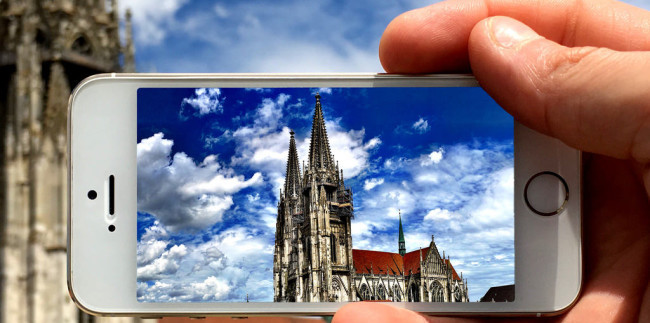
A previous post looked at anxiety caused by too much cell phone use. In this post, we explore anxiety caused from being without it.
That same anxious feeling that can hit when you’re in the throngs of your driving anxiety or driving fear often plagues people for another reason altogether. They become uncomfortable, anxious and even feel lost – when they’re separated from their smartphones.
Smartphone Dependency
Nomophobia, which is short for “no mobile phobia,” is for real. The term is used to describe smartphone dependency, an affliction suffered by people of all ages. A study published in Cyberpsychology, Behavior, and Social Networking found those most affected are typically folks who use their phones to share and store personal memories.
In cases of nomophobia, the smartphone becomes more than just a phone. People start to perceive smartphones as “their extended selves,” according to study author Kim Ki Joon. When that part of their “selves” is taken away, people can experience anxiety, unpleasantness, increased blood pressure and elevated heart rate – all signs of separation anxiety.
That’s because the separation goes much deeper than being away from an electronic device. Smartphones are hubs of social interaction and networking that double as devices that help people manage, schedule and deal with numerous aspects of their lives. The anxiety may stem, in a small part, from people being apart from details of their lives.
A larger part of the anxiety is likely to stem from FOMO, or fear of missing out. The world, alas, keeps on merrily rushing forward – while the separated phone owner has no access to the usual lineup of social media sites.
Signs of Nomophobia
You can take an online diagnostic test to gauge if you’re suffering from smartphone dependency. The test mainly focuses on how you’d feel without your phone, and you may be in the dependency category if you’d feel:
- Uncomfortable without constant access to info through your phone
- Annoyed if you couldn’t look up info when you wanted to
- Nervous if you were unable to get immediate access to news and happenings
- Scared if your smartphone battery ran out
- Weird because you simply wouldn’t know what to do without your phone
Signs of addiction to smartphones follow the same pattern as addiction to anything else. These include:
- Viewing the smartphone as the most important thing in your life
- Increasingly spending more and more time on it
- Using the phone to alleviate stress or stir up excitement
- Letting its use get in the way of work, school, responsibilities or relationships
- Experiencing withdrawal symptoms when you’re without it for a period of time
What You Can Do About It
Helpful activities for dealing with driving fear and driving anxiety include getting in the car and driving, or facing the fears that plague you. A similar technique can be used to reduce the risk and severity of nomophobia. Cutting down on your smartphone use can help alleviate dependency. Try purposely leaving it at home or shutting it off for extended periods.
Whether it comes from driving fear or smartphone dependency, anxiety is never a pleasant experience. But you can take action to alleviate it and live a more peaceful, stress-free life.
SOURCES:







